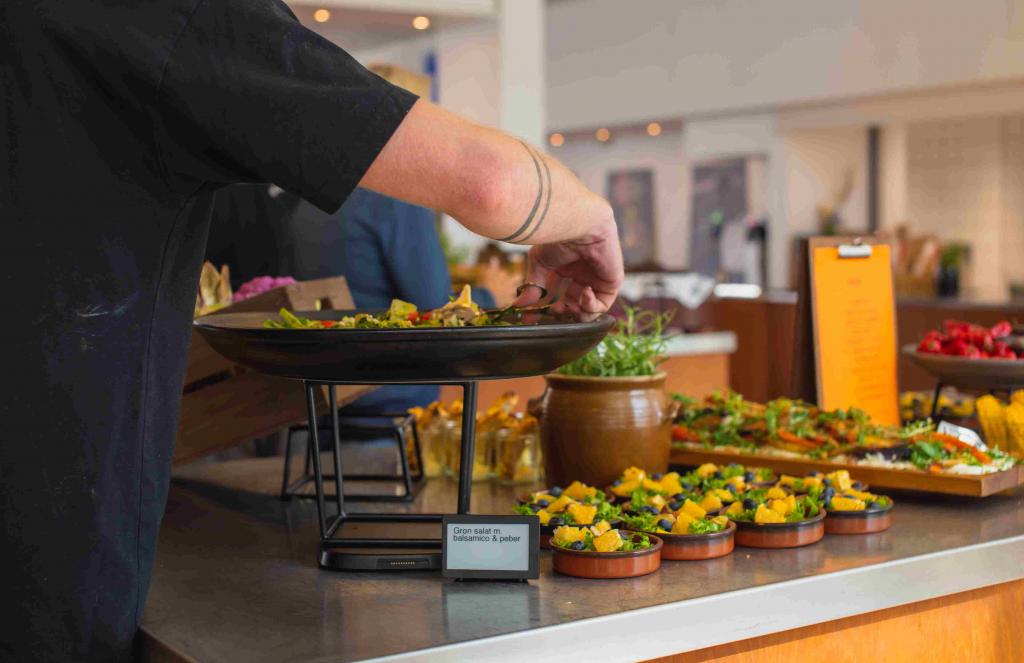Thessaloniki gets ready for its metro launch in November
The underground rapid transit lines have been under construction for almost two decades due to various project delays
 TheMayor.EU logo
TheMayor.EU logo 
Electronic food scales are an indispensable tool in tackling food waste, Source: Gladsaxe Municipality
Did you know that unutilized food accounts for 8-10 percent of global CO2 emissions?
Gladsaxe is a smallish Danish town of about 68 thousand residents. Yet, recent analysis shows that in that municipality alone, every year some 11,500 tonnes of food end up in the bin – food that could’ve been eaten. This organic waste also accounts for 10 percent of the town’s CO2 emissions.
The local authorities, however, are mindful of that impact, and on the occasion of World Food Waste Day (29 September), they revealed that their insight comes from food waste mapping. This makes it one of the first Danish municipalities to implement this methodology of tracing how and where food resources are misused.
The baseline shows that the municipality's own institutions account for a relatively small proportion of total food waste. Only approximately 2 percent of food waste occurs in municipal kitchens such as kindergartens and care centres, while the retail trade and households account for 62 percent and 26 percent of the total food waste, respectively. Company canteens account for 7 percent and restaurants and cafes account for another 2 percent.
The analysis also shows that in the municipal kitchens and company canteens, by far the greatest food waste occurs outside the kitchen – that is, during serving or from plates where the food is not eaten. Only 10-20 percent of food waste occurs in the kitchen.
That is some interesting and revealing data that puts the lens on the food waste landscape of a community and shows how not everyone is equally on board with the message or even the idea about food waste.
Gladsaxe Municipality, together with the local entrepreneur FoodOp and the business partnership Gladsaxe Erhvervsby, has carried out a number of measures at all the municipality's care centres, a large number of children's institutions and company canteens.
With the help of electronic food waste scales and CO2-friendly menu planning, they have succeeded in significantly reducing food waste. The effort has resulted in reductions of between 27 and 40 percent.
“In Gladsaxe, we have a goal of halving our food waste by 2030 and therefore we have now created a baseline so that we can follow the development and know where the food waste is greatest. Concretely, we now know that we must reduce food waste by almost six tonnes by 2030 in order to halve food waste and that it is not enough to look at our municipal kitchens. That is why we are already working closely with citizens and businesses to get rid of food waste,” explains program manager Signe Sloth Hansen.
The reductions are not only good for the climate but have also resulted in large savings in a short time. For instance, Kildegården Genoptræningscenter (a sports centre) thus achieved a saving of DKK 6,000 (about 800 euros) per month in the purchase of raw materials, which can be used for better quality raw materials.

The underground rapid transit lines have been under construction for almost two decades due to various project delays

Now you can get your wine in Talence by paying directly in Bitcoin

That’s because the state has to spend money on updating the railway infrastructure rather than subsidizing the cost of the popular pass

Rethinking renewable energy sources for the urban landscape

The examples, compiled by Beyond Fossil Fuels, can inform and inspire communities and entrepreneurs that still feel trepidation at the prospect of energy transition

Now you can get your wine in Talence by paying directly in Bitcoin

The 10th European Conference on Sustainable Cities and Towns (ESCT) sets the stage for stronger cooperation between the EU, national and local level to fast track Europe's transition to climate neutrality.

At least, that’s the promise made by the mayor of Paris, Anne Hidalgo

The underground rapid transit lines have been under construction for almost two decades due to various project delays

At least, that’s the promise made by the mayor of Paris, Anne Hidalgo

Hostal de Pinós is located in the geographical centre of the autonomous region

Despite its church-y name, the district has long been known as the hangout spot for the artsy crowds

Urban dwellers across the EU are having a say in making their surroundings friendlier to people and the environment.

Forests in the EU can help green the European construction industry and bolster a continent-wide push for architectural improvements.

Apply by 10 November and do your part for the transformation of European public spaces

An interview with the Mayor of a Polish city that seeks to reinvent itself

An interview with the newly elected ICLEI President and Mayor of Malmö

A conversation with the Mayor of Lisbon about the spirit and dimensions of innovation present in the Portuguese capital














